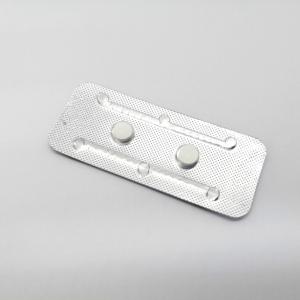Q&A on Context Matters: Kicking off Black History Month with Keisha Bentley-Edwards
Developmental psychologist Keisha Leanne Bentley-Edwards, PhD, MA, is an associate professor in the division of General Internal Medicine, the Associate Director of Research and the Director of the Health Equity Working Group for Duke’s Samuel DuBois Cook Center on Social Equity, a scholarly collaborative that studies the causes and consequences of inequality and develops remedies for these disparities and their adverse effects.
Duke Names Health System Chief Executive Officer
Craig Albanese, M.D., an accomplished health care leader and distinguished academic pediatric surgeon, has been named chief executive officer of Duke University Health System (DUHS).
Medical Experts Examine Impact of NC Bills on LGBTQ+ Youth
Duke experts discuss the potential effects of a bill in the North Carolina state legislature that would restrict gender-affirming care for minors.
Dean Klotman's Friday Message & Conversation with Kevin Thomas, MD
In celebration of Black History Month, Dean Klotman interviews Kevin Thomas, MD, the School of Medicine's Vice Dean for Equity, Diversity and Inclusion, about the importance of the month and about Duke's role in combating racism.
Duke CTSI's Janis Curtis Named 2023 Changemaker in Health
Janis Curtis, MSPH, MA, associate director of the Duke Clinical Data Research Networks (CDRN) Program, has been named a 2023 Changemaker in Health for her courage, curiosity, and determination to help transform the global health ecosystem through the best use of information technology.
Shaking a Shared Delusion: Andrea Deyrup Combats Race-Based Medicine
Andrea Deyrup, MD, PhD, a professor in the Department of Pathology, challenges a long history of race-based medicine that she says is often based on questionable assumptions and flawed science yet deeply embedded in clinical decision-making.
Black History Month: Legacies Behind the Names on Campus
Learn the stories of places and things named in honor of Black students, faculty and staff
New Therapy for Advanced Breast Cancer Has Roots in Duke Lab
On January 27, 2023, the Food and Drug Administration approved a new targeted therapy for hard-to-treat advanced breast cancers. Its development was made possible by research and advocacy from the lab of Donald McDonnell, PhD, in the Department of Pharmacology and Cancer Biology.
Sherilynn Black Named Co-Chair of NASEM Initiative
Through her research and administrative work, Sherilynn Black has developed expertise in what scholars need to thrive in academic careers. Recognized as a national leader, she will guide a new initiative at the National Academies of Sciences, Engineering and Medicine on mentorship, professional development and well-being.
Medication Abortion TikTok Videos Tend to be Accurate and Reliable
Popular TikTok videos that highlight ways to obtain a medication abortion are typically informative and useful, according to a study led by Duke Health researchers.









